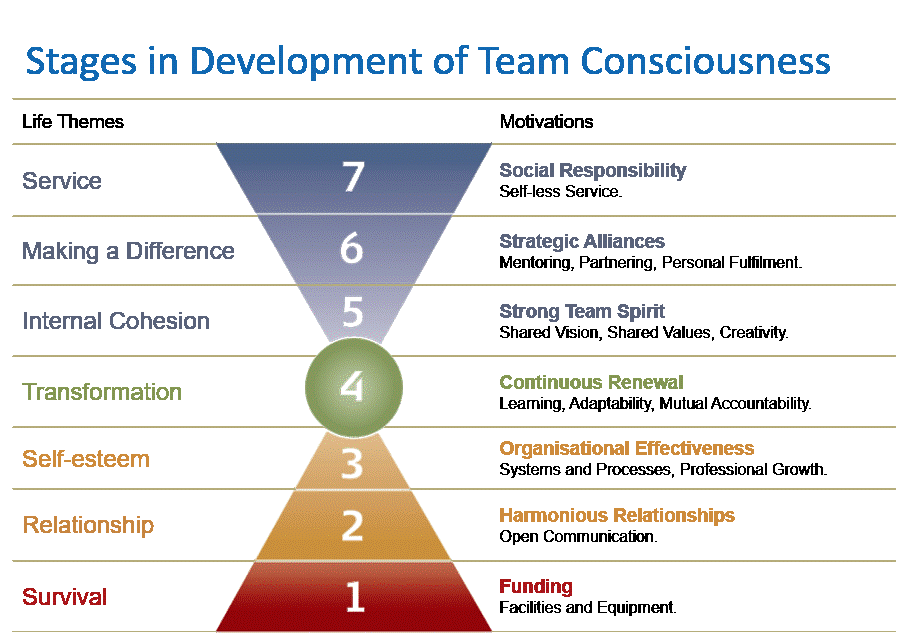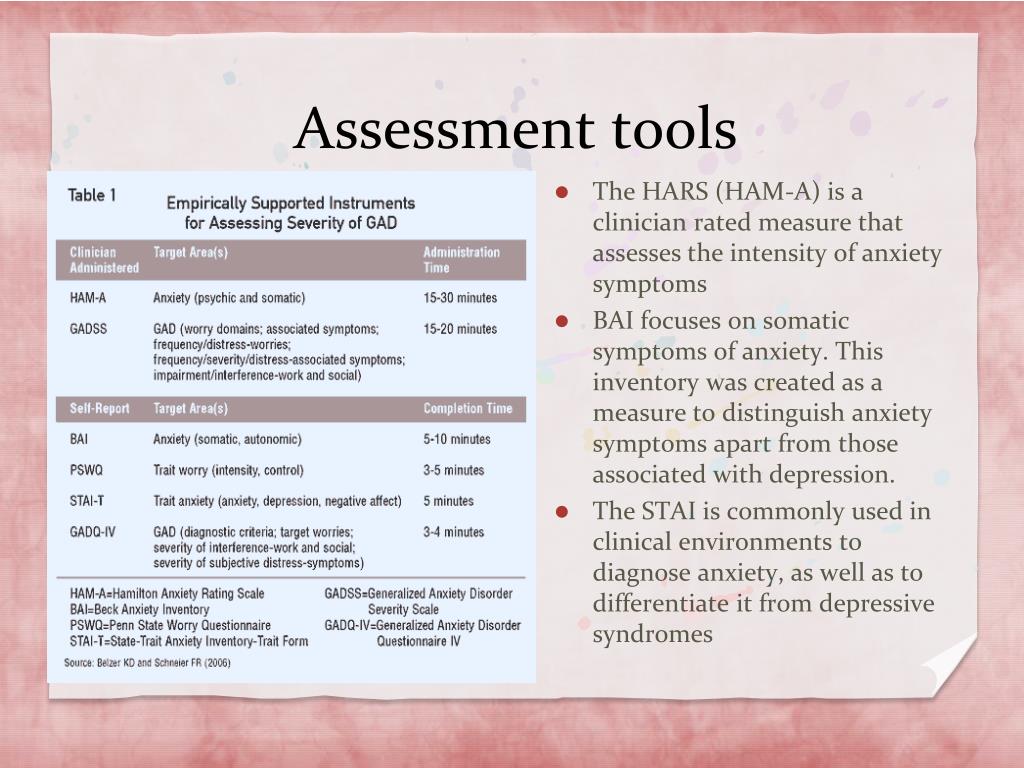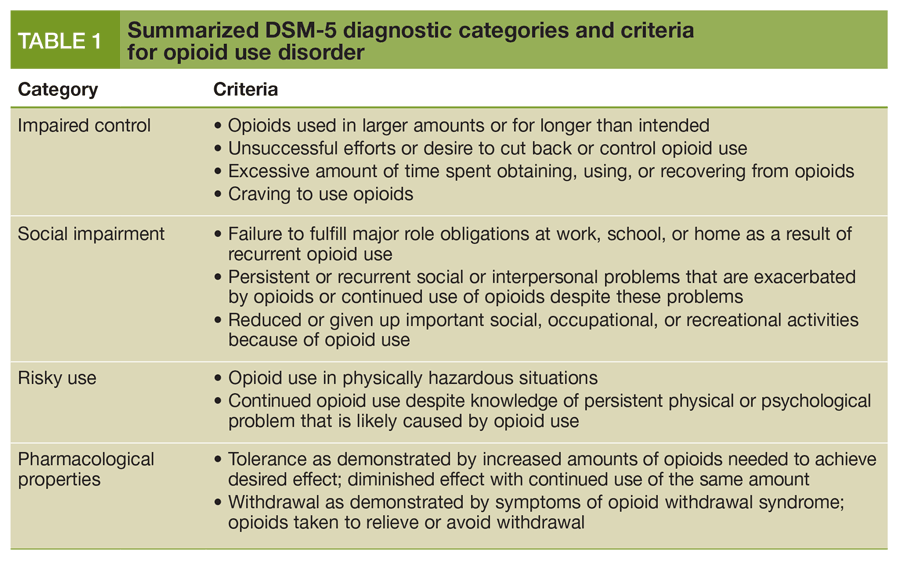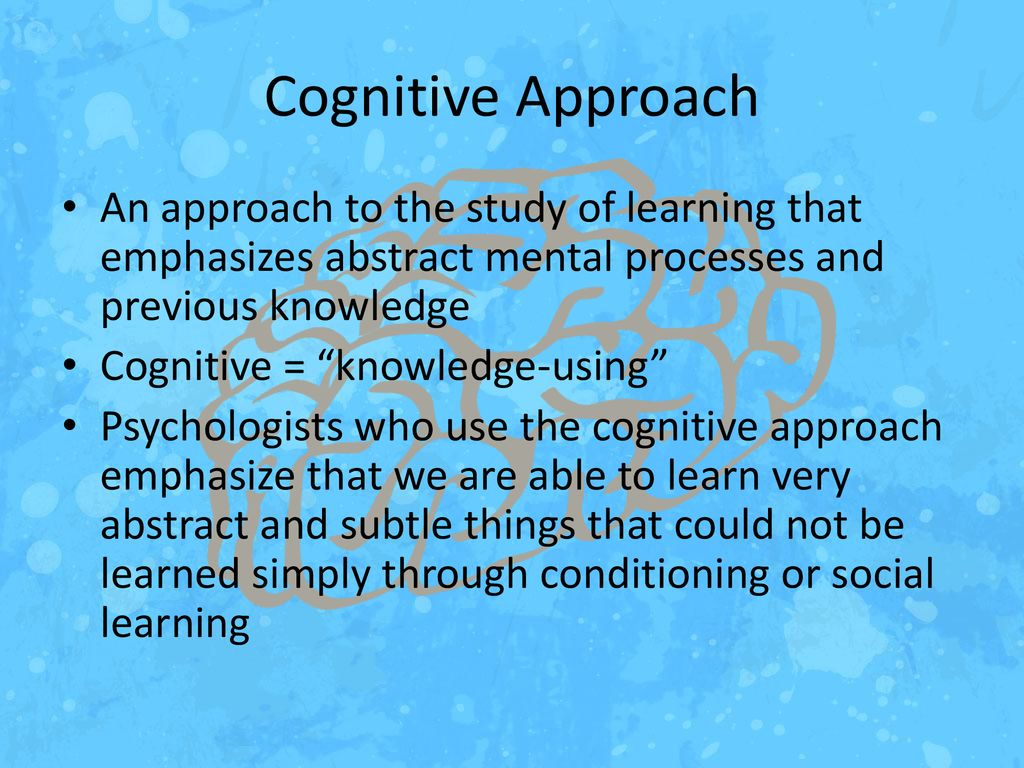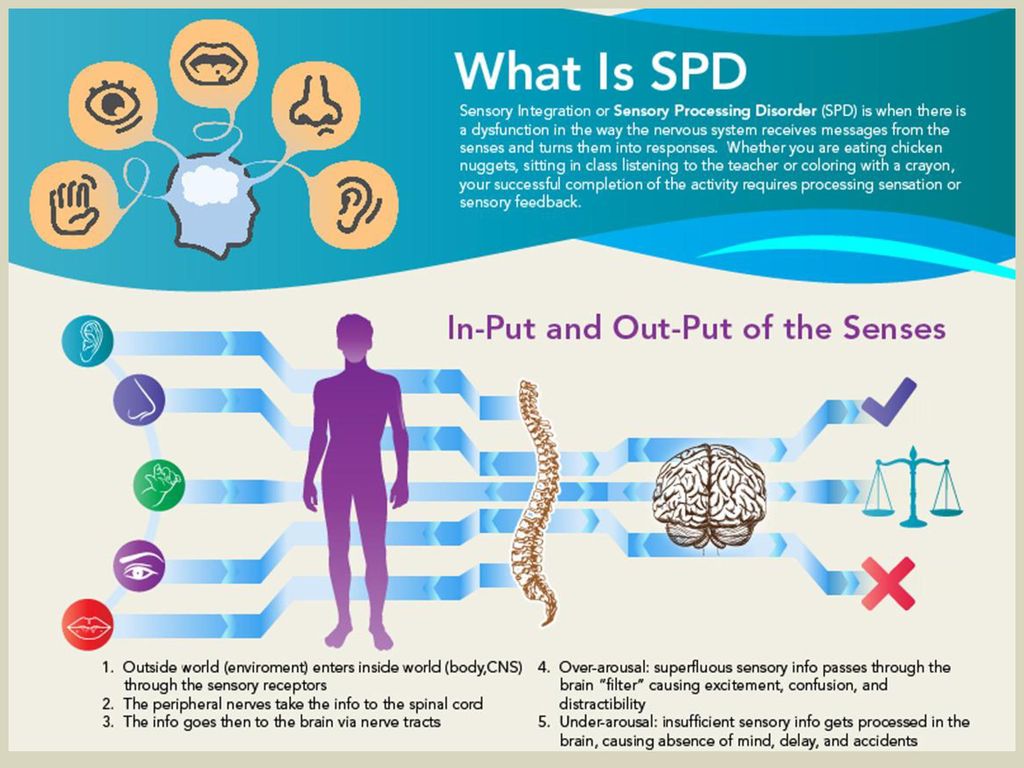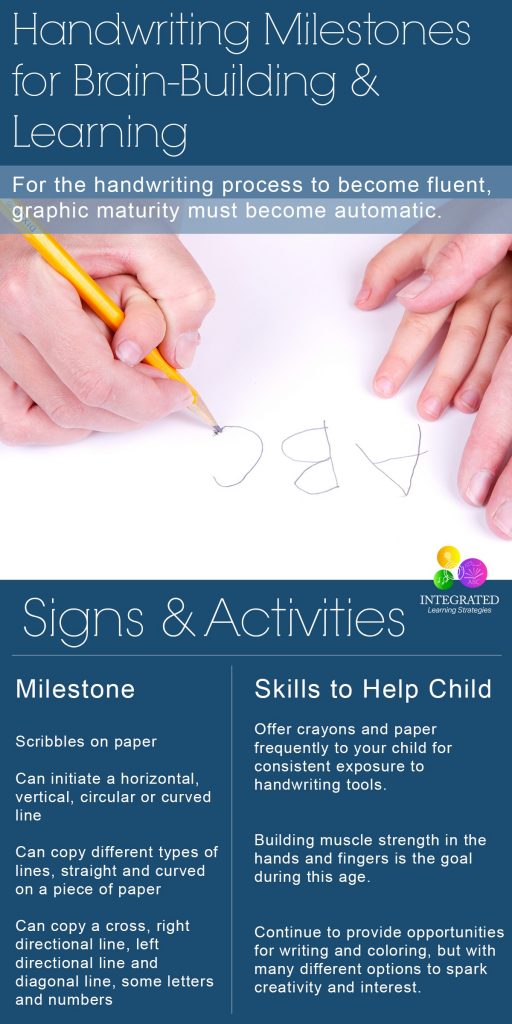How to conquer jealousy in a relationship
How to not be jealous and overcome it with these 9 tips
Healthy intimate relationships are one of the biggest joys in life, bringing companionship, laughter and passion into both partners’ lives. When your relationship is based on trust, it serves as a lifeboat, anchor and sail that keeps you afloat, secure and filled with purpose. When jealousy corrodes the trust and respect in your partnership, the relationship becomes a weight that hinders personal progress.
Understanding how to stop being jealous in a relationship is a prerequisite for a healthy union. No matter what causes jealousy in your relationship, you can work to tame it and create a meaningful partnership.
Want to improve how you handle relationships?
Download Tony's Free Relationship Guide
Is jealousy healthy in a relationship?
When it’s mild and expressed in a healthy way, jealousy can lead to growth in a relationship. It’s a natural human emotion; eliminating it completely isn’t possible for many of us. We want to be the apple of our partner’s eye. We want them to reciprocate the way we feel. We want them to commit to us. These are all perfectly fine standards in a relationship.
Mild jealousy shows that we care about our partner and don’t want to lose them. Jealousy in relationships only becomes a problem when we let it get out of control. If you’re able to recognize the emotion, determine what it’s telling you, communicate that to your partner in a nonjudgmental way and reach a productive solution, that’s healthy jealousy. If you’re engaging in constant fights or unhealthy behaviors like snooping in your partner’s phone, it’s time to look at what causes jealousy in a relationship – and how to fix it.
What causes jealousy in a relationship?
Jealousy in relationships often doesn’t show up immediately. When you first meet your partner, you’re in your honeymoon phase. The endorphins are flying. But then, you see a text from a person you don’t know. Or you notice your partner likes to make friends with new people when you go out. If you’re jealous of your partner’s successes, perhaps there’s an unhealthy element of competition that needs to be eliminated.
If you’re jealous of your partner’s successes, perhaps there’s an unhealthy element of competition that needs to be eliminated.
It’s easy to point the finger at your partner as the reason for your jealousy. But to discover how to not be jealous in a relationship, you must understand that it isn’t about your partner – it’s about you. In every one of these scenarios, ultimately you’re projecting your insecurities onto your partner, and it’s your insecurities that need attention. You must gain a deeper self-awareness about your own beliefs, attitudes and emotions, then learn to transform them.
At its core, jealousy in relationships is about low self-esteem. When you don’t feel confident in yourself or feel that you deserve the love of your partner, you project those insecurities onto your partner. These are limiting beliefs – false beliefs we hold about ourselves and our true natures that hold us back.
Even if your partner broke your trust, it’s likely your jealousy still stems from insecurity that was provoked by your partner’s actions. You can repair your relationship – but not if you’re letting your limiting beliefs hold you back. When you learn how to replace them with empowering beliefs and confidence, you’ll learn how to stop being jealous in a relationship.
You can repair your relationship – but not if you’re letting your limiting beliefs hold you back. When you learn how to replace them with empowering beliefs and confidence, you’ll learn how to stop being jealous in a relationship.
Effects of jealousy in relationships
Unhealthy jealousy goes against the 5 Disciplines of Love – universal principles for building a trusting, healthy union. The discipline of unconditional love and compassion becomes impossible to sustain, because jealousy impairs your ability to love without barriers. It’s also impossible to be truly vulnerable when jealousy is an issue – and vulnerability is another prerequisite for a passionate and loving relationship. If you can’t learn how to not be jealous in a relationship, you’ll never connect with your partner on a deep, honest level.
Jealousy also creates tension in the relationship. When you are constantly suspicious, your partner may not be completely open with you for fear of igniting your jealousy. Even when they’re not doing anything wrong, your envy clouds discernment and it becomes hard to tell the truth from mere suspicions.
Even when they’re not doing anything wrong, your envy clouds discernment and it becomes hard to tell the truth from mere suspicions.
You can’t give your partner the freedom to live life when you’re jealous, nor can you feel free to live your own life when you’re dealing with a jealous partner. Jealousy can creep into all areas of your life, making it hard to enjoy anything.
This tension can affect the physical, emotional and mental health of both partners. Chronic stress can increase risk for hypertension and heart problems, decrease immune function and shorten overall lifespan. The lack of enjoyment you feel in your relationship can turn into anxiety and depression. Studies have found that jealousy in relationships ends up negatively affecting relationship commitment – the opposite effect of what the jealous partner wants.
When jealousy is given full sway in a partnership, neither party thrives. And if you don’t learn how to overcome jealousy in a relationship, you could drive your partner away for good.
How to stop being jealous in a relationship
Your partnership will suffer if you let jealousy go unchecked. Understanding jealousy in relationships requires being honest with yourself and your partner. Get to the bottom of your jealousy and create a healthier relationship dynamic.
1. Be honest about jealousy’s impact.
It’s impossible to solve a problem if you refuse to acknowledge it. Rather than pretending you aren’t feeling jealous or your jealousy isn’t a problem, be honest. How do you feel because of your insecurities, and how are they hurting your relationship? It might be difficult to acknowledge the problems your envy is causing, but take heart in the fact that you’re taking the first step to a healthier relationship.
2. Ask what your jealousy is telling youPsychology Today provides a family therapist’s view on how to stop being jealous in a relationship: Rather than view jealousy as a problem, look at your jealousy as a solution. Jealousy (or any other relationship issue) is a window of opportunity we can peer through to gain clarity. Humans feel deeply – it’s the source of our greatest joys and greatest sorrows. We developed these emotions for a reason: they are there to tell us something.
Jealousy (or any other relationship issue) is a window of opportunity we can peer through to gain clarity. Humans feel deeply – it’s the source of our greatest joys and greatest sorrows. We developed these emotions for a reason: they are there to tell us something.
Instead of shutting down the jealous behavior outright, seek to understand it first. What problem is the jealousy attempting to solve? Working backward from there will help you get to the bottom of how to stop being jealous. By getting to the real problem, you’re able to address it and find lasting relief.
3. Discover the Six Human Needs.
It’s likely that your jealousy is telling you something about your Six Human Needs. These are the needs that must be met in order to create a fulfilling relationship. They underlie every decision we make – and jealousy is a decision. It isn’t a result of your partner’s actions or something that was done to you in the past. It’s a result of your unique values and your mindset. You can learn to control it, but you must go to the source: your thoughts, emotions and needs.
You can learn to control it, but you must go to the source: your thoughts, emotions and needs.
4. List your insecurities.
Mastering how to stop being jealous in a relationship starts with looking at yourself. What insecurities are driving your jealousy? Are you unsure of yourself due to perfectionism? Are you comparing yourself to others? You’re not making this list to shame yourself – you’re owning your role in the relationship.
5. Cultivate self-confidence.
Once you’ve made a list of the insecurities driving your jealousy, write down an antidote to each one. If you’re living under the shadow of your partner’s ex, make a list of all the traits your partner loves about you. If you constantly compare yourself to celebrities, unfollow them on Instagram for a week. By giving yourself space from feelings of inferiority, you’ll be able to develop the self-confidence you need to overcome jealousy.
6. Consider the source of your insecurity.
Mastering how to not be jealous in a relationship is often a matter of healing the wounds of the past. If you’re struggling with jealousy due to an unresolved issue like a childhood trauma or addiction, get the support you need to overcome it. With the right help, you can transform your struggles into sources of strength.
If you’re struggling with jealousy due to an unresolved issue like a childhood trauma or addiction, get the support you need to overcome it. With the right help, you can transform your struggles into sources of strength.
7. Be honest with your partner.
If you’re struggling with jealousy, your partner has probably already noticed. Your partner is most likely also contributing to the problem. By practicing effective communication, you’re acknowledging your contribution while also holding your partner accountable – and giving them the opportunity to support you as you work toward a solution.
8. Build healthy coping skills.
Sometimes, it can be hard to let go of jealousy in relationships if you don’t have healthier ways to relate. Provided your partner isn’t giving you a reason to be suspicious or jealous (ie. by cheating on you or habitually lying), it’s up to you to tame the source of your jealousy. Recognize that you don’t need jealousy – you’re just used to it. Practice self-care and nurture your physical, emotional and mental health. When you prioritize healthy coping mechanisms, they become the norm and eventually replace jealousy.
Practice self-care and nurture your physical, emotional and mental health. When you prioritize healthy coping mechanisms, they become the norm and eventually replace jealousy.
9. Discover
The Ultimate Relationship Program.It often isn’t easy to learn how to not be jealous in a relationship. Jealousy is such a deep-seated emotion that it often feels like we have no control over it. So where do you start? The key is to think of your relationship holistically. Jealousy is just a symptom of a larger disconnect. What’s really going on between you and your partner?
The Ultimate Relationship Program will take you back to basics, teaching you about concepts like polarity and the Six Human Needs – the building blocks of all romantic relationships. You’ll look inward at your own desires and limiting beliefs before looking outward at your partner. You’ll finally eliminate your fears once and for all and know how to overcome jealousy in a relationship in a healthy, positive way.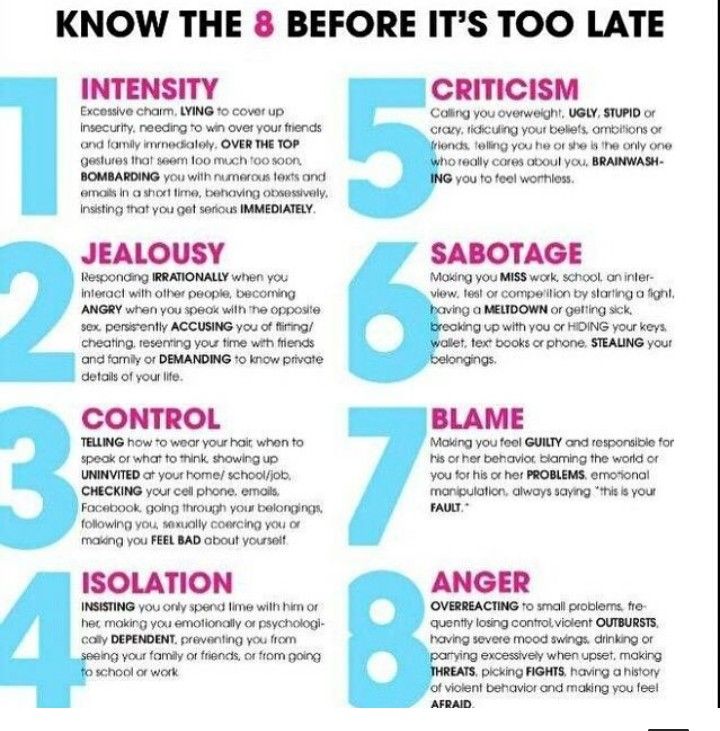
Want to stop feeling jealous?
A Results Coach can help you examine and overcome your limiting beliefs, so you can feel fulfilled and confident in relationships.
Get Coaching
This website uses cookies to personalize your experience and target advertising.. By continuing to use our website, you accept the terms of our updated policies
Jealousy And Relationships | How To Get Over Jealousy?
Jealousy can be a powerful and painful emotion, and this negative emotion can end almost any relationship. If left untreated, jealousy can create a permanent wedge between you and your partner, while negatively affecting future relationships.
Where Does Jealousy Come From?
Jealousy basically arises from insecurity within oneself and not trusting your partner.
In fact, envy and jealousy are similar. However, jealousy involves a sense of possessiveness and entitlement whereas an envious person covets what another person possesses–their possessions, positions, privileges or who they are as a person (their looks).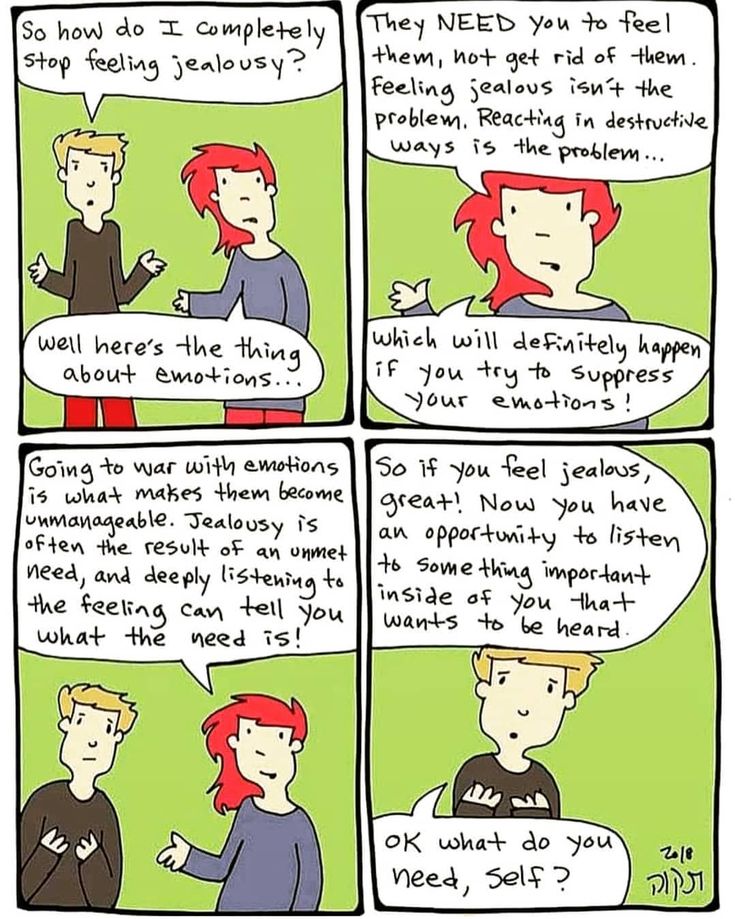
A jealous person holds on tightly to what they already have–usually their romantic partner– to keep others from taking this person away.
When envy and jealousy get out of control, it can be highly destructive.
How To Get Over Jealousy?
Jealousy in a relationship can be healed. How a couple deals with jealousy and other conflicts is vital to their success.
Openly sharing your feelings about being insecure or uncertain in your relationship begins the conversation.
- Speak from your heart
- Avoid justifying your actions,
- Don’t make accusations
- Don’t be confrontational
It is OK to talk about your concerns, your doubts and your desires. View this time of tension as an opportunity for open communication and expansion of understanding for both partners.
Tame Your Imagination
It is amazing that something that starts off in our imagination can soon spark out of control and cause such devastating damage. Imagination grows jealousy–like seeds, fertilizer, sun and water grow your garden.
Imagination grows jealousy–like seeds, fertilizer, sun and water grow your garden.
Recognize the negative stories and constant self-talk. Don’t blow things out of proportion by going over them time and again in your mind. Just imagine instead, being able to do all of the things that make you happy instead of having all those negative thoughts and emotions running around inside your head.
Imagine not having to obsess and worry over every little thing.
You should also take a good luck at those things that trigger your jealousy. Carefully think through the circus-like situations you have imagined about your partner and what real evidence you have to validate them.
Jealousy knows no rational thinking and it has no rhyme or reason. Do a reality check by assessing your obsessive thoughts with what you actually know or have seen. Cancel thoughts of conspiracy and replace them with real facts.
Furthermore, even a small disagreement can spark a massive fight just because of jealousy.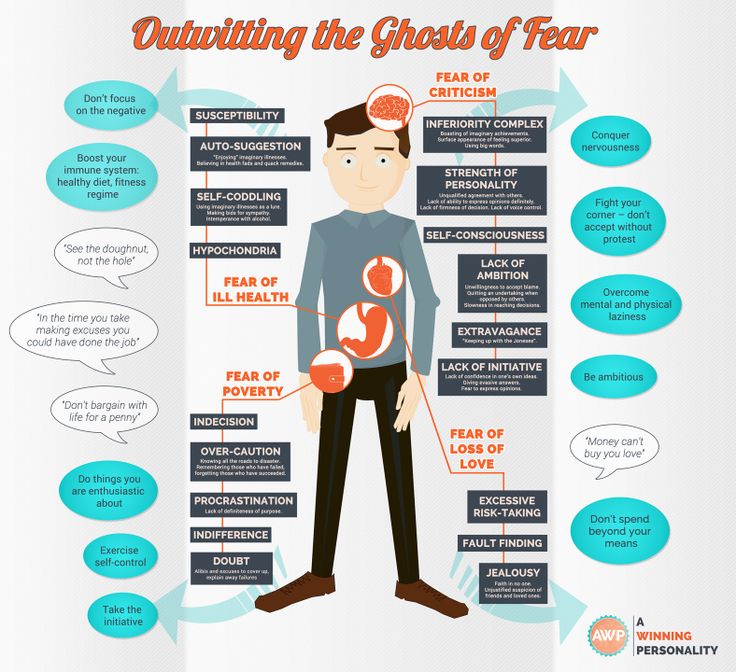 If your own insecurity or low self-image makes you think badly of yourself, you often begin to wonder what your significant other sees in you.
If your own insecurity or low self-image makes you think badly of yourself, you often begin to wonder what your significant other sees in you.
It is imperative to work on improving yourself as an individual in order to be a whole and equal partner in your relationship.
Instead of getting wrapped up in situations in which you cannot control, try a stress-reducing lifestyle. Get involved in groups and activities that make you feel good about yourself. Focus on your strengths. And by all means, have more than one friend.
How To Let Go Of The Past?
Constantly going over negative events of the past robs you of the present and makes you feel bad. It is important to trust and have complete faith in your partner to prevent jealous feelings toward them.
See your partner and each day as a fresh start and opportunity to grow together, as opposed to rehashing and reliving your past experiences of doubt and despair.
It’s important to understand that jealousy is an emotion that can torment the one you care most about. In fact, jealousy can even become somewhat of an addiction. The disregard that you put on that person through your jealous insecurities is as real to them as your feelings of being trapped in your own prison of doubt.
In fact, jealousy can even become somewhat of an addiction. The disregard that you put on that person through your jealous insecurities is as real to them as your feelings of being trapped in your own prison of doubt.
Acknowledge that what you most fear – your partner leaving you – is exactly what you are perpetuating with your destructive and possessive patterns.
Consider the consequences of your piercing insecurities. Realize jealousy is not only destructive but a very lonely place to be.
How Do I Handle A Jealous Partner?
Having a jealous partner can be exhausting. There is only so much possessiveness, control and questioning you can take. There are things you can do to encourage a healthier relationship. Here are a few tips:
- Listen to your partner with new ears to hear all of their concerns
- If you know certain behaviors trigger your partner’s jealousy, change them if you can
- Point out what you most appreciate about him or her, and offer reassurance that you are committed to the relationship
- Tell your partner what you most want in your relationship.
 Don’t just say, “I want you to stop being jealous!”
Don’t just say, “I want you to stop being jealous!”
Keep in mind it takes both people to make a great relationship. However, if your partner isn’t willing to change or get help, you can make changes in yourself that will greatly impact your life for the better.
Location Finder
Know someone who can benefit from these tips? Share this article with them on social media.
If you are in crisis, please call our crisis line, call 911 or visit the nearest emergency room.
If you're still having trouble and would like to reach out to someone about counseling or other Centerstone services, contact us.
What is jealousy and how to stop being jealous: 7 tips from a psychologist
. What are the real causes of jealousy? Dealing with the SpecialistsUpdated August 15, 2022, 10:44 AM
Shutterstock
Many people experience an unpleasant feeling of anxiety, anger and envy when the object of their affection or love shows their affection for another person. This is jealousy, and, apparently, there is nothing unusual in such a reaction. The question is how far a person can go in his suspicion. Psychologists explain what is the cause of this feeling and how to manage it.
This is jealousy, and, apparently, there is nothing unusual in such a reaction. The question is how far a person can go in his suspicion. Psychologists explain what is the cause of this feeling and how to manage it.
Content
- What is it
- Causes
- Signs
- Psychological advice
What is jealousy
Shutterstock
Jealousy is a complex of negatively colored feelings that appear in a person from the feeling that someone important to him does not show sufficient affection or is in a situation where this affection can be violated. Simply put, jealousy is combined with a possessive feeling and a desire to be the only one for a partner in every sense. There is no medical diagnosis or definition of the term "jealousy".
Tatyana Potapovadocent, PhD, psychotherapist "SM-Clinic"
“First of all, it should be said that jealousy is a normal, natural feeling, it is experienced by everyone who loves. Some say: "Without jealousy, there is no love." This feeling is especially strong in a situation of so-called romantic love, it is characterized by a special attitude towards the object of love: "This person is only mine, he should feel love only for me."
Some say: "Without jealousy, there is no love." This feeling is especially strong in a situation of so-called romantic love, it is characterized by a special attitude towards the object of love: "This person is only mine, he should feel love only for me."
Valeria Moshnyatskayaclinical psychologist of the European Medical Center
“In the ICD-10 (International Classification of Diseases) we will not find a diagnosis of “jealousy”, but most often people suffering from these conditions have a diagnosis of F43.2 “adjustment disorder” or may relate to anxiety spectrum disorders or depressive disorders. A person prone to jealousy may resort to manipulation, blackmail, and even threats when the peak of his experiences is growing. After the passed peak, regret and guilt may appear. But the main thing is that there is calming until the next episode. This feeling is what keeps the cycle of behavior going. The main task of a jealous person is to become the main thing for a partner and devalue everyone, even the partner himself, in order to stay in the first place for sure.
According to Tatyana Potapova, different types of jealousy should be distinguished. There is one that is based on objective factors, such as real treason. Irrationally jealous are those who invent possible causes, present them and suggest them. Pathological jealousy is characterized by delusional and obsessive states. It is the subject of scientific research.
For example, a comparison of morbidly jealous people with ordinary people showed that they are often much older than the control group. At the same time, they demonstrated low purposefulness and desire to cooperate with others, the desire to avoid any harm, high impulsivity and anxiety, as well as low social adaptation [1].
Pathological love is next to jealousy, but studies confirm that they are not always the same or combined. A comparison of subjects with pathological jealousy and pathological love showed that jealous people are more likely to be in relationships and feel satisfied with them. On the other hand, despite the obvious differences, 72. 3% of respondents showed symptoms of a mental disorder [2].
3% of respondents showed symptoms of a mental disorder [2].
Why do people get jealous
Shutterstock
Jealousy is based on fear, which is combined with the feelings of anxiety, self-abasement, and anger that it causes.
Valeria Moshnyatskaya:
“It could be the fear of losing love, power, control, stability, security, support, respect, etc. For example, a pathological desire to protect a partner from communication with others may be caused by a fear of loss or a fear of comparison, which, in turn, was learned in childhood. If a child has been compared to others or favored siblings in childhood, he may want to keep his partner away from other people so that he does not face similar comparisons and a return to painful experiences.
Tatiana Potapova:
“The feeling of jealousy usually develops between one and three years of age — it is always associated with childhood. The child observes the relationship of the parents and transfers the observations into adulthood. Lack of love in childhood, experienced violence, psychological trauma can cause feelings of jealousy. The main factor is the fear of losing the love of a loved one.
Lack of love in childhood, experienced violence, psychological trauma can cause feelings of jealousy. The main factor is the fear of losing the love of a loved one.
Thus, the underlying causes of jealousy can be caused by:
- traumatic experiences in childhood or adolescence;
- low self-esteem;
- unhealthy attachment;
- selfishness and possessiveness;
- projection of their feelings on the partner's feelings.
There is also a version about the evolutionary background of jealousy. This feeling, which helped our ancestors to survive, was inherited by us. The traditional model of evolutionary psychology holds that men become jealous in response to sexual threats to the relationship they are in. If our male ancestors were confident that they were the real fathers of the children they provided, they were guaranteed to pass on their DNA.
Women, in turn, were jealous in response to emotional threats to the relationship they were in. After all, these stable relationships increased the chances of survival of the offspring, which means that the transmission of further female DNA. This eventually led to the appearance of men with the sexual jealousy gene and women with the emotional jealousy gene [3]. True, some studies show that differences in the components of jealousy associated with gender are not relevant now. Simply put, both men and women are equally jealous in case of sexual infidelity, and in case of emotional infidelity they feel more resentment [4].
After all, these stable relationships increased the chances of survival of the offspring, which means that the transmission of further female DNA. This eventually led to the appearance of men with the sexual jealousy gene and women with the emotional jealousy gene [3]. True, some studies show that differences in the components of jealousy associated with gender are not relevant now. Simply put, both men and women are equally jealous in case of sexual infidelity, and in case of emotional infidelity they feel more resentment [4].
How to understand that you are jealous
Shutterstock
Not everyone is ready to directly admit that they are jealous. Often people don't even realize it. Therefore, Valeria Moshnyatskaya described several signs of the presence of jealousy in a relationship:
- the partner tries to control communication, all messages and correspondence, personal belongings and social networks;
- wants to know where you are every minute;
- looks for inconsistencies in your words and suspects lies;
- negatively evaluates your communication with the opposite sex or even friends, tries to devalue them and criticize their behavior;
- constantly requires confirmation of love, fidelity; in their absence, the partner becomes overly emotional and quick-tempered, may be offended without explaining the reason;
- uses manipulation and blackmail.
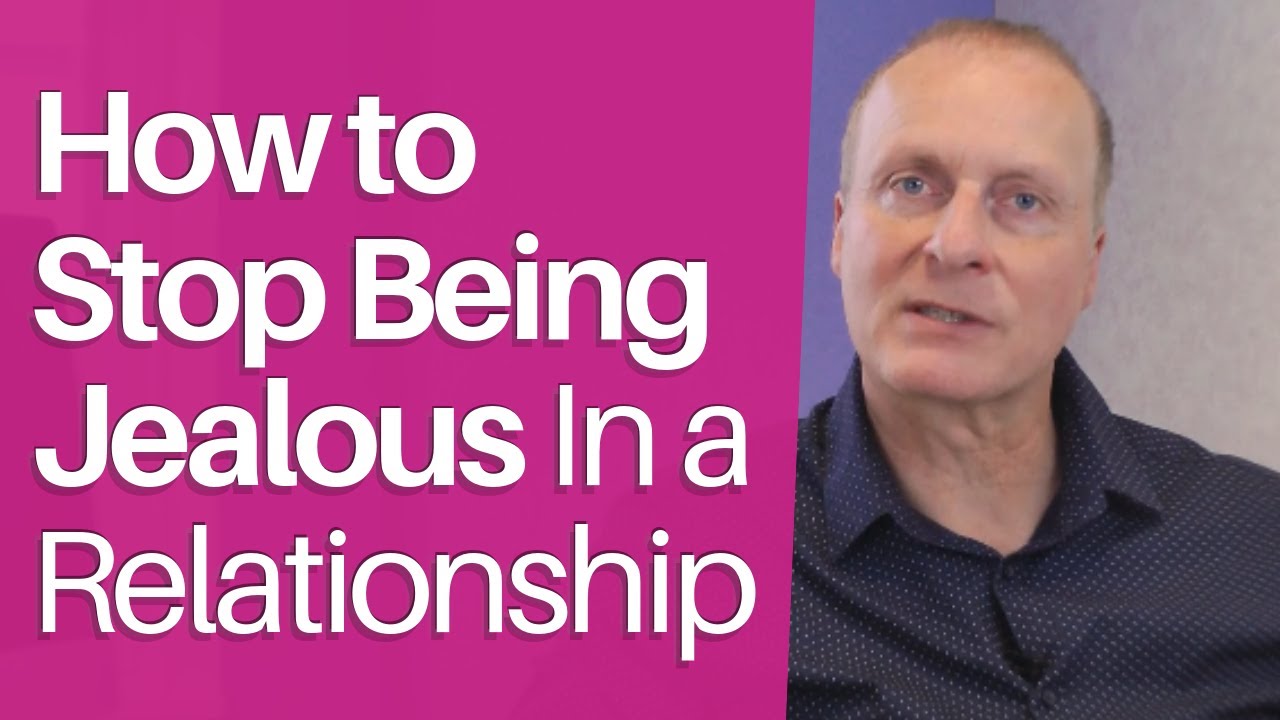
Most importantly, this behavior is systematic.
“At the moment of an attack of jealousy, a person experiences the strongest uncontrollable fear, which envelops him so much that it makes it impossible to make decisions rationally. You see the wounded childish part of a person who is scared, and she is ready to keep the object of love by any means.
It is important that the manifestation of jealousy, like any other personality traits, has different intensity. If a partner clearly explains to you the reason for his fears, specifically formulates a request, and this does not cause tension in you, then jealousy can be compensated in the relationship cycle. For example, a partner says: “It is important for me that you do not compliment other people in my presence. It hurts me a lot, and I immediately experience a lot of negative emotions that I can’t cope with ”or“ I very often worry that you will stop loving me or leave me. The only thing that saves me from this fear is your words of love. Tell me more of them. But if you don’t tell me because you forgot (a) or you got winded (as), then I would like (a) to be able to request them and hear from you.
Tell me more of them. But if you don’t tell me because you forgot (a) or you got winded (as), then I would like (a) to be able to request them and hear from you.
How to stop being jealous: 7 advice from a psychologist
Shutterstock
Jealousy is dangerous not only for the object - he is exposed to the risks of persecution, psychological and physical violence - but also for the jealous person himself. Doctors say that people who are prone to jealousy experience high blood pressure and heart rate, high levels of adrenaline, and may have a weakened immune system. Jealousy causes anxiety and potentially insomnia [5].
Doctors are trying to find a cure only for morbid jealousy, which can cause domestic violence [6]. By the way, jealousy also affects the sexual health of people. For example, a study in Nicaragua showed that, as a result of jealousy, men force their partners to have sex, often transmitting diseases and infections such as HIV to them [7]. Cases of successful treatment with the antipsychotic drug pimozide are known [8]. There is also talk about a possible positive effect from intranasal administration of oxytocin [9].
There is also talk about a possible positive effect from intranasal administration of oxytocin [9].
There are some simple but effective self-help steps that Valeria Moshnyatskaya recommends:
- Be aware that you are jealous. As soon as you begin to experience anxiety, immediately tell your partner: "I'm very jealous right now, I need time to recover."
- Discuss your story with a partner, explain why fear arises.
- Reflect. Try to keep a diary and write down what happens to you at the peak of jealousy. After four or five recordings, analyze what fear is driving you to these feelings.
- Remember that each attack of jealousy is very likely to alienate your partner from you, which is the paradox of this cycle.
- Try to remember to whom for the first time in your life you experienced these feelings. Most likely, this is one of the parents, then it is worth discussing this with him (her) and request words of support.
- If you feel that jealousy takes a lot of energy, it is worth contacting a psychotherapist for help in order not to miss depressive symptoms.
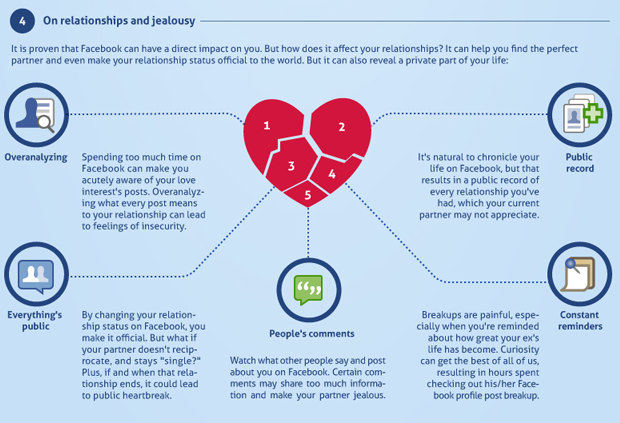
- It is important to remember that a person prone to jealousy is more likely to choose a partner who maintains these cycles with their low emotionality. We choose those with whom we know how to behave. But this is not a sentence, any relationship can be brought into comfortable with the help of conversations or family therapy.
Tatyana Potapova:
“What can be done to a person who understands that he is jealous “from scratch”? Refuse to interrogate your loved one, try to look at things objectively: take a sheet and divide it into two parts, try to describe the events as if they happened to a stranger. What did your partner do out of the ordinary? Reflect all the pros and cons, look at the result from a distance.
Another way to fight jealousy is sublimation, the transfer of negative energy into a positive channel. Creativity, hobbies - everything that helps to cope with negativity.
However, when trying to overcome jealousy, one should not go to the other extreme: it also happens that they actually try to deceive a jealous person. It is important to find a middle ground, to understand how objective your suspicions are.
It is important to find a middle ground, to understand how objective your suspicions are.
If your partner is very jealous, but there is no reason for this, try to contact a family psychologist together. If jealousy becomes pathological, then an appeal to a psychotherapist is required.
Don't provoke a jealous partner, talk to him to restore trust. If your partner does not have a mental disorder, then his feeling of jealousy will be quite correctable. And sometimes a frank conversation is enough for the partner to calm down and normal relations to be restored.
See also:
Share
Materials for the article
Authors
Tags
Ksenia Dobrynina
How to deal with jealousy: advice from a psychologist in the capital
Jealousy is one of the most common reasons women turn to psychologists. Many women tend to experience a constant painful state of inner fear, fear of losing an object that is significant to them. According to experts, to one degree or another, jealousy is present in everyone. We can be jealous of friends, colleagues, family members, it all depends on the degree of emotional closeness. What is jealousy and where does it come from, says Nina Kizrina, a psychologist at the Hope branch of the Crisis Center for Women and Children.
According to experts, to one degree or another, jealousy is present in everyone. We can be jealous of friends, colleagues, family members, it all depends on the degree of emotional closeness. What is jealousy and where does it come from, says Nina Kizrina, a psychologist at the Hope branch of the Crisis Center for Women and Children.
Bring peace to the family
32-year-old Tatyana turned to the Crisis Center for Women and Children. She has been married to Mikhail for 12 years, her husband holds a managerial position and spends a lot of time at work.
Until June 2020, the woman had no idea that her husband could cheat on her. But after the long-term and happy marriage of her best friend collapsed before our eyes due to infidelity, Tatyana was seriously worried. In just a few weeks, she worked herself up so that she could not close her eyes. It began to seem to the woman that Mikhail had been deceiving her for a long time. Thus began endless surveillance of her husband, and over time this led to frequent conflicts in the family, which had not happened before. Tatyana realized that unreasonable jealousy would not lead to good, and turned to professional psychologists for help.
Thus began endless surveillance of her husband, and over time this led to frequent conflicts in the family, which had not happened before. Tatyana realized that unreasonable jealousy would not lead to good, and turned to professional psychologists for help.
“The psychologist has developed a plan for individual conversations. Meetings with Tatyana were held once or twice a week for three months. In the process of work, it was possible to restore the emotional background, remove obsessive and disturbing thoughts, harmonize the relationship between spouses and restore peace to the family, ”says the specialist .
Jealousy is like
Jealousy is a bright, negative, emotional feeling of possessiveness, reinforced by selfishness, the desire to completely control another person, which is usually expressed in distrust, suspicion, in painful doubts about loyalty and love.
Psychologists distinguish three types of jealousy: rational, irrational, delusional jealousy.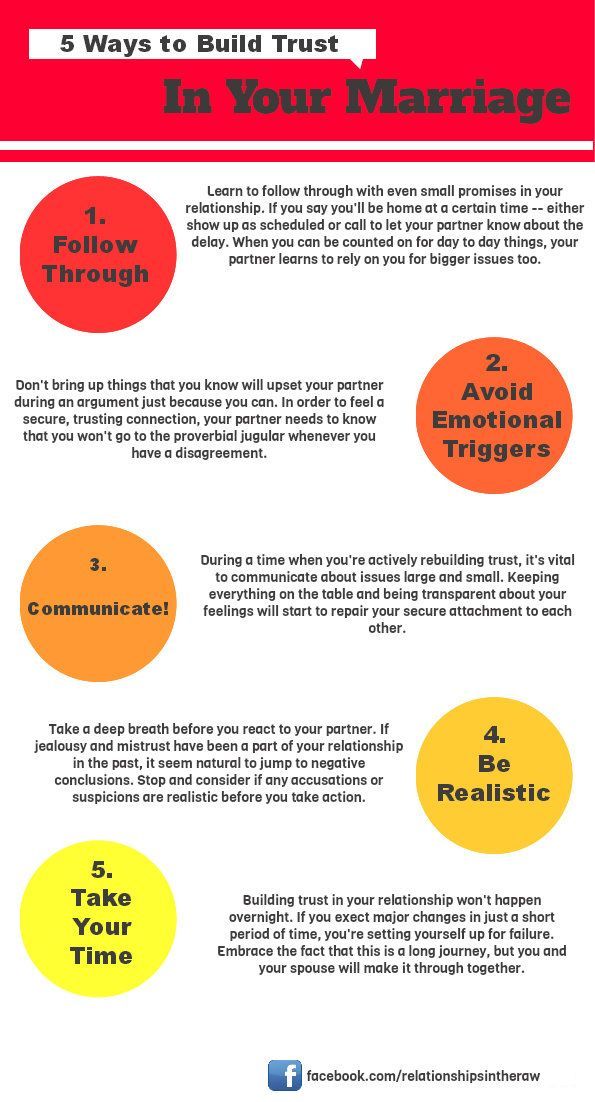
- Rational jealousy arises when there is really a real threat to lose the object of love.
- Irrational jealousy is not connected with reality and is based mainly on imagination and fantasy. It occurs in people with a vivid imagination who suffer from inferiority complexes, who have suffered mental trauma in childhood.
- Delusions of jealousy - inadequate, unreasonable jealousy, reaching the point of mental pathology. Basically, this type of jealousy occurs in people with mental disorders (schizophrenia, paranoid disorder, alcoholism, drug addiction).
How jealousy is born
The feeling of jealousy is formed in a period of one to three years. In the family, the child learns how to interact with each other, what should be the relationship of parents. The kid sees how mom and dad communicate, take care of each other, solve problems.
As a rule, a jealous woman in most cases chooses a man for her husband who will stimulate this feeling. The origins of the causes of jealousy come from parent-child relationships - lack of love in childhood, physical or sexual abuse, genetic predisposition, childhood psychological trauma. Growing up, a jealous woman on an unconscious level begins to play her scenario from childhood - the psychological trauma of rejection, fearing its repetition. Later, this behavior acts as a form of betrayal prevention.
The origins of the causes of jealousy come from parent-child relationships - lack of love in childhood, physical or sexual abuse, genetic predisposition, childhood psychological trauma. Growing up, a jealous woman on an unconscious level begins to play her scenario from childhood - the psychological trauma of rejection, fearing its repetition. Later, this behavior acts as a form of betrayal prevention.
« Jealousy may be caused by competition between siblings who claim special status from their parents; identification with the deceived parent when the other parent is cheating; dysfunctional relationships in the parental family - alcoholism, physical abuse, infidelity of the parent of the opposite sex , ”says the specialist.
Causes of jealousy at an older age are self-doubt, low self-esteem in sexual terms, the presence of an inferiority complex, uselessness, underestimation of one's own abilities and capabilities. Also, the causes of jealousy can be emotional dependence, fear of losing an object of love or loneliness, an excessive sense of ownership, an unlimited right to possess another person.
One of the manifestations of jealousy is sadomasochism. The experiences of jealousy here are closely connected with self-torment, with manifestations of masochistic tendencies.
“ The jealous one gets a kind of pleasure from the torment experienced during constant surveillance, looking for evidence of a partner’s betrayal”, - Svetlana notes.
An important cause of jealousy is the neurotic need for control. If a jealous woman misses the opportunity to control her partner, then she begins to panic, jealousy increases significantly.
Another reason for jealousy is the partner's provocative behavior. In this case, the partner unconsciously provokes jealousy in order to get "proof of love", focusing on the formula "jealous means love." Therefore, such women always have a dramatic relationship with a partner, she constantly needs confirmation of love. This indicates a high degree of codependency.
“If there is silence at home, there are no manifestations from the husband, declarations of love, scandals and manifestations of jealousy, then she becomes unbearable - she needs an emotional shake-up, a discharge that she is used to receiving in a dysfunctional parental family,” says psychologist.
How to get rid of jealousy
- If you decide to fight this negative and destructive feeling, then always proceed from the thought that your partner is faithful to you. By continuing to think that he is cheating on you, you will never be able to cope with jealousy.
- Realize that the reason for your jealousy lies not in the actions of your partner, but in your own fears of the horrors that your imagination draws: betrayal, betrayal, loneliness.
- Having understood that the reason for your jealousy is fears and complexes, do not expect your partner to do something magical, from which jealousy will be removed as if by hand. Will not take off. The only person who can pull you out of the swamp of jealousy before it completely destroys you completely is yourself.
- Replacement of fear. The best way to deal with fear is another fear. Stop being afraid that your loved one will cheat on you, start to fear that with your suspicions, scenes of jealousy and tantrums, you will finally destroy your relationship.
